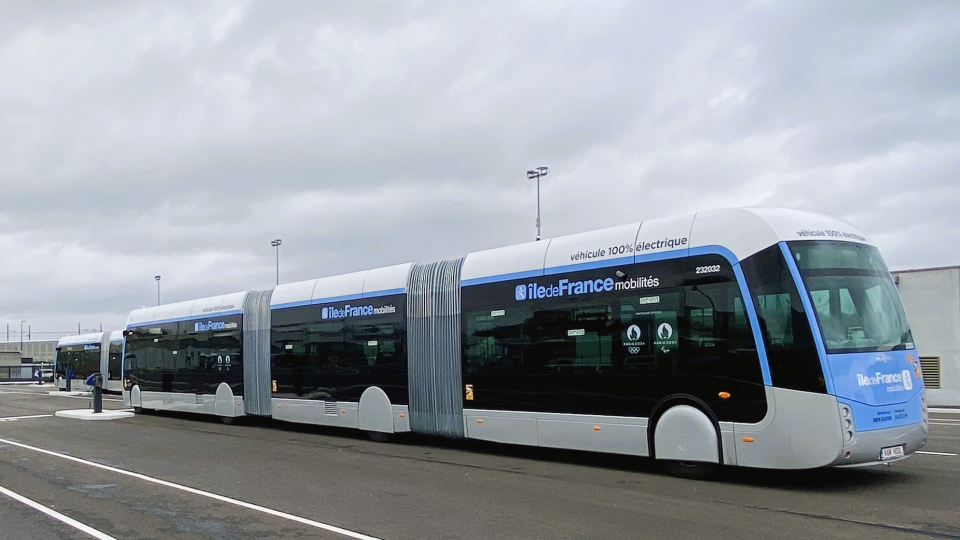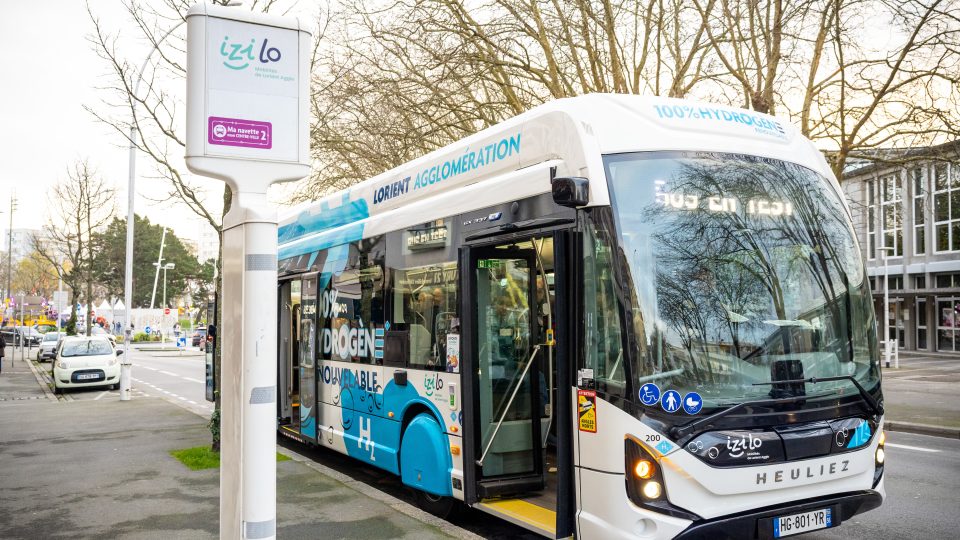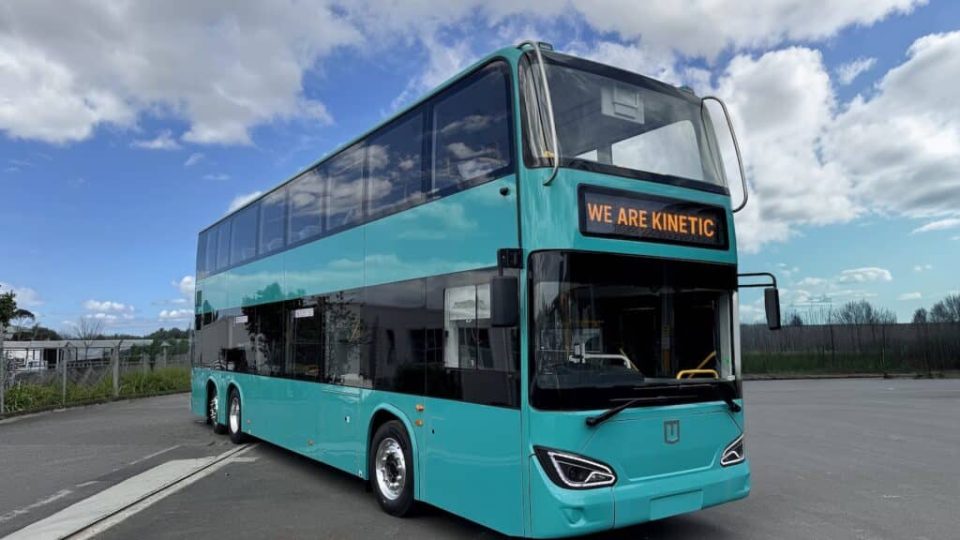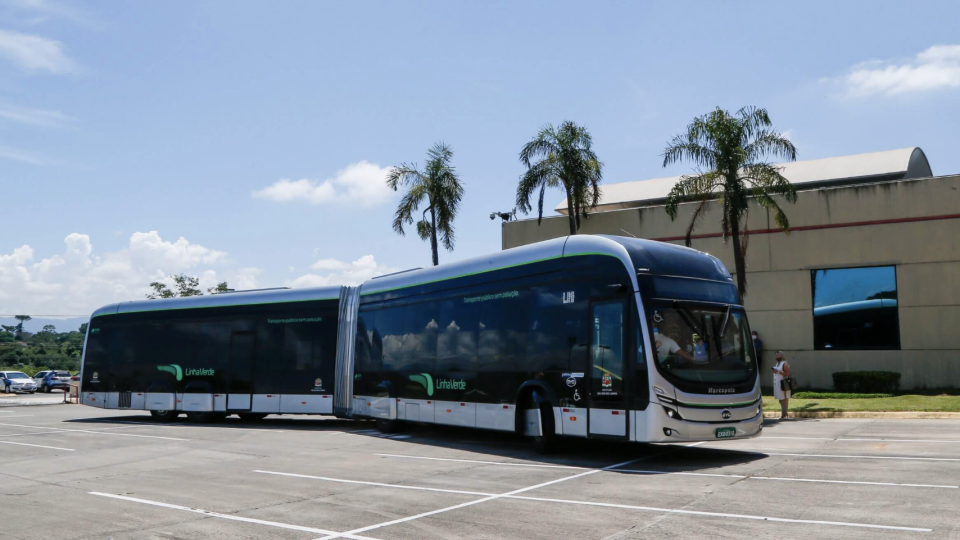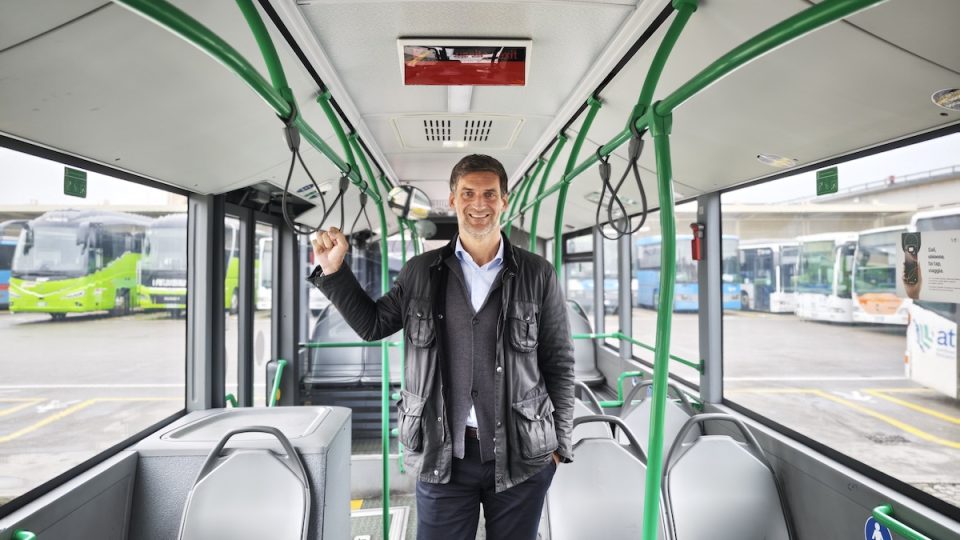Santiago de Chile, an open tender for 2,000 buses. A case study by ZEBRA
Santiago de Chile has 411 battery-electric buses today in operation within the largest e-bus fleet outside China (…although the brands are the same, as only Chinese-made ZEBs are running in Santiago, and Latin America, so far). The capital city is in the spotlight of a lately released case study realized by ZEBRA project in the framework […]
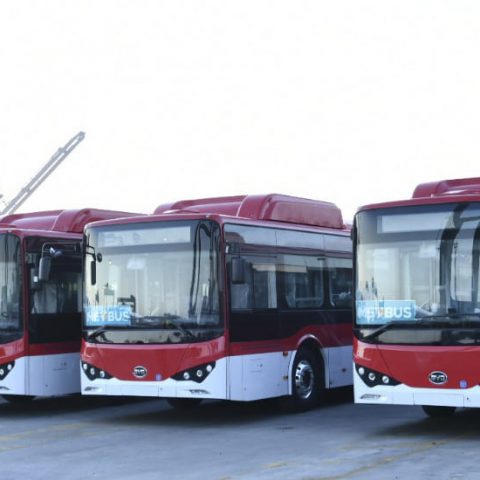
Santiago de Chile has 411 battery-electric buses today in operation within the largest e-bus fleet outside China (…although the brands are the same, as only Chinese-made ZEBs are running in Santiago, and Latin America, so far).
The capital city is in the spotlight of a lately released case study realized by ZEBRA project in the framework of the International Energy Agency’s Global EV Outlook 2020 (which included outlooks on electric bus deployments in other cities of the world). The report is entitled: “From pilots to scale. Lessons from electric bus deployments in Santiago de Chile“. It is written by Sebastian Galarza for Centro Mario Molina Chile, a ZEBRA’s partner.
Currently an open tender is underway in Santiago to renew more than 2,000 buses, with incentives for electric buses. And full electrification should be complete, according to mandate, by 2035. There is still a long way to go: considering that Santiago has over 6,700 buses in operation, the 411 e-buses so far deployed account for a 6 per cent of the total fleet.
CLICK HERE TO READ ZEBRA’S KEY STUDY

ZEBRA project and electric buses in Latin America
ZEBRA project (the name stands for Zero Emission Bus Rapid-deployment Accelerator) is led by ICCT and C40 with focus on the South American cities of Medellin, Mexico City, São Paulo, Santiago de Chile. The ultimate goal? «Shift all new bus procurements in leading Latin American cities to Zero Emission technologies».
Looking at the next decade, ZEBRA partners (the project is funded by P4G)estimate that there may be 25,000 new bus purchases in the above mentioned cities (whose bus fleets, put together, total some 50,000 buses). Figures that makes clearly understandable the great opportunity for replacement of diesel vehicles with electric bus models.
A report on the reasons behind Santiago leadership in e-buses
More than 40 % of Chile’s population lives in Chile, a 7-million people city. Since the beginning of 2019, Santiago is home to the largest fleet of electric buses outside of China. The report tries to answer to the following questions: «How did the city become a global leader in the adoption of electric public transport? What lessons can we learn from Santiago and what does the future of public transit in Chile look like?».
Today there are 411 e-buses in operation in Santiago. The latest add is made of the 215 Foton AUV vehicles delivered since April. BYD and Yutong brands are also present in the city, within projects which involve, among others, the energy provider Enel X.
With regards to the CO2 savings, the final chapter of the report we read that «Preliminary calculations show emissions reductions on the order of 2,561.1 tonnes of CO2e from 3,658,388 km operated with 100 electric buses from Metbus. Extrapolating this to the current fleet of 411 battery electric buses, these have reduced close to 20,630 tonnes of CO2e, or around a 5% reduction in CO2 emissions from 2018 levels».
Transit users appreciate electric buses
Interestingly, says the report, «Public transit users also view electric buses in a favorable light, and gave them a score of 6.3 out of 7; that is higher than Euro VI buses, which received a score of 5.8, and the public transportation system as a whole, which received a 4.3».
But what about the financial side? The report says that «economic impact of electric bus deployment is still unclear. However, operational costs released by operators show substantial reductions vis-à-vis conventional buses. Moreover, the continued incorporation (at scale) of electric buses into the fleet, which is expected to increase to more than 800 in 2020, sends a strong market signal». The authors says that the transit system in Santiago is «heavily subsidized».
A tender underway for 2,000 buses
The authors write: «It is important to note that this deployment in Santiago was accomplished outside of fleet renewal tenders and by taking advantage of contract extensions to current operators. It was not through competitive bidding. Overall, Santiago has struggled, as have many other cities in South America, to renew its transport fleet over the past few years. Tenders have been deserted and modified. At the time of writing, there is an open tender to renew more than 2,000 buses and also make substantial changes in the structure of the transportation system.
The new system seeks to split the ownership and operation of assets by having fleet suppliers and bus operators, while the transport authority manages depots. Embedded in the current tender are several incentives for electric buses. Fleet suppliers can obtain fleet contracts for 10 years for internal combustion engines and for electric buses, it is extended to 14 years. Operators, which will lease buses from suppliers, will be granted 5-year contracts that are extendable for up to an additional 5 years based on performance factors. Importantly, if the base operational fleet of these operators is made up primarily of electric buses, i.e., more than 50%, than these contracts are granted for 7 years, and are extendable for another 7 based on performance indicators (…). This is the first tender in Santiago where we will see diesel buses compete alongside electric buses. Other tenders have been technology specific. While it is unclear how many of the new buses will be electric, recall that there is a mandate to fully electrify by 2035».



